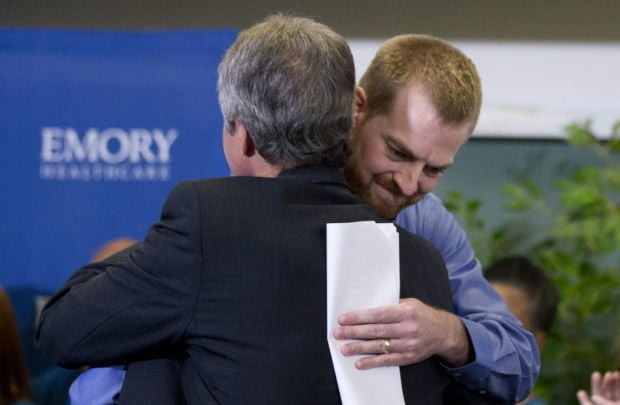PHOENIX — The Goldwater Institute goes to court Tuesday, Oct. 10, trying to force the FDA to reveal details on how dying people can get access to unapproved medicines.
Attorney Jonathan Riches wants U.S. District Court Judge Susan Bolton to order the Food and Drug Administration to disclose exactly how it reached the decision to allow two people infected with the Ebola virus to be administered ZMapp, even though the drug had not been approved for human testing.
He contends the public is entitled to know and that the case is about more than approving one drug in one instance.
“If the FDA can do that in this case, can it do it in other cases where other sick and dying Americans might need access to investigational drugs?” Riches asks. How that happened, he said, “shouldn’t be a government secret.”
Riches said the government has disclosed the process it used to grant approval. What it won’t provide, he said, are the steps it took in reaching various decisions along the way. Such details could provide a road map for others seeking to use unapproved drugs, he said.
But Peter Lantka, an assistant U.S. attorney, says what Goldwater wants is protected under various exceptions to the federal Freedom of Information Act. He said the FDA is not required to release information that could include trade secrets of the manufacturer or personal information about patients.
Riches said he doesn’t want any of that. Anyway, the names of the two people who got emergency access to ZMapp already were made public.
Disclosing the internal discussions of federal officials, Lantka said, would undermine the process “because if agencies were forced to operate in a fishbowl, candid exchange of ideas within an agency would cease and the quality of decisions would suffer.”
In 2014, Dr. Kent Brantly and Nancy Writebol, aid workers who treated patients in West Africa, were infected with the Ebola virus, for which there is no known cure. The FDA agreed to allow them to be administered ZMapp; the pair recovered and wrote about it, which is why their names are known.
Riches, seeking disclosures from the FDA, filed suit in 2015 in federal court.
Lantka said there are procedures for a drug company or a treating physician to seek permission to administer a product for treatment ahead of normal testing. But he said there are strict guidelines.
First, the doctor must determine the probable risk to the patient is not greater than the probable risk from the disease. There also must be a finding that the patient has a serious or immediately life-threatening condition, that there is no comparable or satisfactory alternative, and that the potential benefit to the patient justifies the potential risks of the treatment.
But he told the judge that the internal deliberations of the FDA on how they reached that conclusion in the ZMapp case are not subject to disclosure under the federal FOIA. He said information submitted by the drug company also is considered confidential.
Riches counters that the information he seeks isn’t covered by any exemptions to federal public records laws.
His lawsuit dovetails with Arizona’s “right to try” legislation approved in 2014, which says doctors can prescribe drugs not yet approved by the FDA to terminally ill patients.
But that law has limits, including a requirement the drug be through at least “Phase 1.” That means the manufacturer has tested it on a small group to evaluate safety, determine a safe dosage and identify side effects. ZMapp has not been through that first step.
The FDA has a “compassionate use” exception from its requirement for final approval before a drug can be used. It requires a balance between harm and benefit for severely ill patients, exemption used to give ZMapp to the two patients with the Ebola virus.
In a news release last month, company MappBio said the drug “has yielded promising safety and efficacy data from animal models” as well as from a clinical trial conducted during the Ebola outbreak between 2013 and 2016 in West Africa. The company said ZMapp is being made available to patients in the United States, Guinea, Liberia and Sierra Leone through the compassionate use exception.





